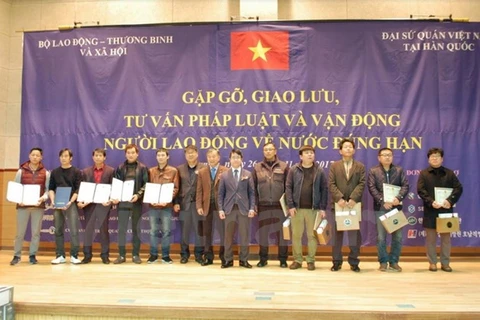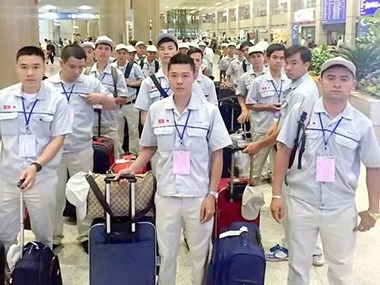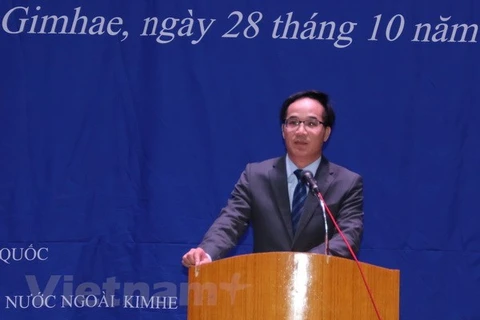Hanoi (VNA) – Vietnam sent 116,675 workers, including 41,636 females, to foreign countries and territories in the first 10 months of this year, exceeding the yearly plan by 6.07 percent.
According to the Department of Overseas Labour under the Ministry of Labour, Invalids and Social Affairs, 14,548 labourers, including 4,978 women, were sent to work abroad in October.
Japan received the largest number of Vietnamese guest workers during the month, with 8,078 people; followed by Taiwan (China), with 5,373; the Republic of Korea, 522; Saudi Arabia, 120; and Algeria, 102.
Last year, over 134,700 workers, including 53,340 females, went to work abroad. The figure exceeded the annual plan set for 2017 by 28.3 percent. This is also the fourth consecutive year that the number of workers sent overseas has surpassed the 100,000 benchmark.
Taiwan topped the list of countries and territories hiring Vietnamese guest workers with 67,000 people in 2017, nearly half of the total number. By the end of 2017, the number of Vietnamese workers working in Taiwan stood at 206,184, with 87 percent employed in industrial manufacturing and 13 percent in social services.
Japan came second with 54,504 workers from Vietnam in 2017, up 36.47 percent from 2016, bringing the total number of Vietnamese labourers in Japan to over 100,000, the highest among 15 countries sending workers to Japan.
This year, Japan is the most attractive market as it allows Vietnamese labourers to return to work for a second time in many sectors. Higher wages were also offered while Vietnamese are permitted to extend their working time to five years.
Currently, a personnel project is training about 1,000 highly competent workers for the German market. After training, they will spend three years working in the European country before coming back to serve their home country.
As planned, by the end of November this year, Vietnam will sign a cooperation programme with Bulgaria and Rumania on training highly skilled human resources.
Vietnam is focusing on high-skilled workers and high-tech sectors, and the workforce will return to make contributions to the country’s development.-VNA
VNA
























